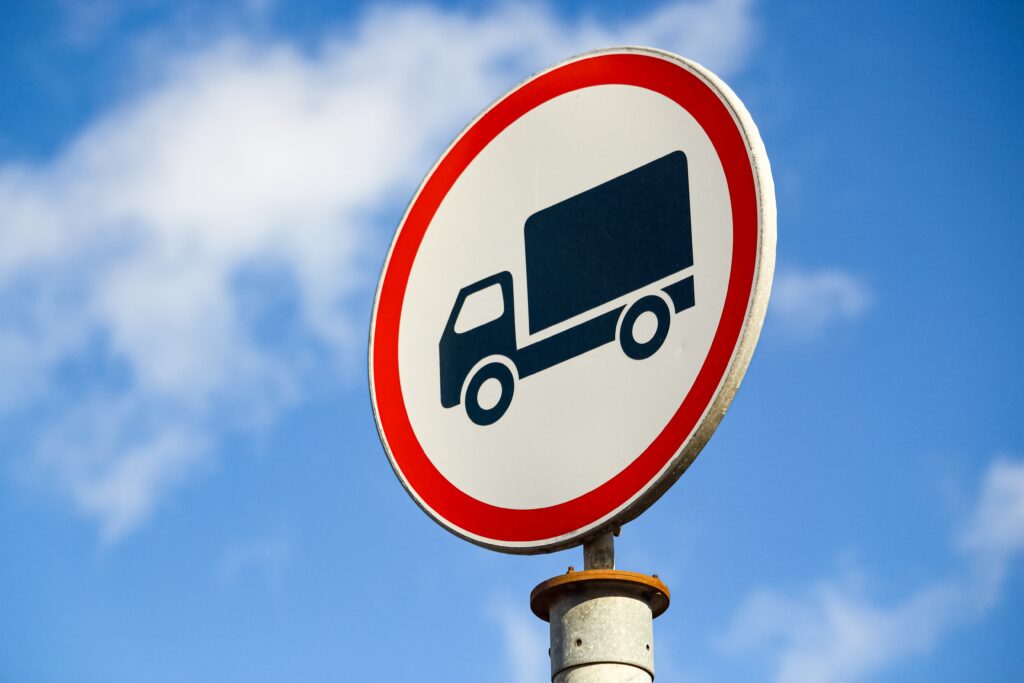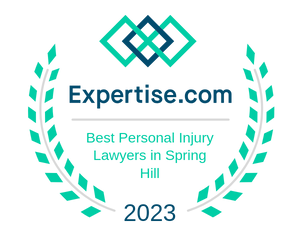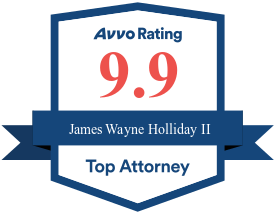A collision with a commercial truck is not simply a more serious car accident. It operates under an entirely different set of rules and involves companies with vast resources dedicated to protecting their bottom line. If you were injured in a truck accident in the Tampa area, you have specific rights under both state and federal law, including the right to pursue compensation for your injuries and all resulting losses.
Right now, you are likely facing urgent questions. How will you pay for your medical care? What happens if you cannot return to work? How should you handle the trucking company’s insurance adjuster?
To chart a way forward, you need to work with a team with a clear understanding of the factors unique to commercial vehicle accidents—from federal safety regulations to the multiple parties who might share responsibility. A mistake or a missed deadline could put your financial recovery in jeopardy.
Our firm handles the legal groundwork of truck accident claims so you can focus on your health. We investigate these incidents to uncover the facts and protect the rights of injured people. If you have questions about what happened, call us for a no-cost conversation about your options at (813) 868-1887.
Key Takeaways for Tampa Truck Accident Claims
- Multiple parties may be responsible for the accident. This means your claim might extend beyond the driver to include the trucking company, a parts manufacturer, or even the cargo loaders, increasing the potential sources for a financial recovery.
- Federal regulations are the backbone of your case. Commercial trucks are governed by the Federal Motor Carrier Safety Administration (FMCSA), and proving a violation of these rules is a direct way to establish negligence.
- Evidence disappears quickly. Key information like the truck's "black box" data, driver logs, and maintenance records are controlled by the trucking company and may be lost or destroyed if not legally preserved.
Why Trust Holliday Karatinos Law Firm With Your Truck Accident Claim?
When you are recovering from a serious injury, choosing who will handle your case is a significant decision. Our team at Holliday Karatinos Law Firm gives you the direct, personal attention of a small practice while having the resources to stand up to large trucking corporations and their insurance carriers.
With more than 50 years of collective legal experience, we have been helping people across the Tampa Bay area get back on their feet. Our practice is built on a simple foundation: provide skilled and compassionate assistance to people hurt through no fault of their own.
How We Support You
- A No-Cost, No-Obligation Case Review: We will sit down with you, listen to what happened, and explain your legal options in plain language.
- Direct Communication: You will have a direct line to your legal team and will be kept informed about the progress of your case.
- A Contingency Fee Basis: You pay nothing unless and until we secure compensation for you. This aligns our goals with yours from day one.
- Deep Local Presence: With offices in Lutz, Brooksville, and Inverness, we serve communities across Hillsborough, Pasco, and Citrus counties, making us accessible to you.
Our personal commitment is to your recovery, both physical and financial. We manage the investigation, the paperwork, and the negotiations, allowing you to dedicate your energy to healing.
What Compensation Is Available After a Tampa Truck Accident?
The purpose of a personal injury claim is to provide financial stability after an accident rewrites your life. The law allows you to pursue payment for every way the collision has impacted you, from concrete financial debts to deeply personal losses.
These damages fall into three main categories:
- Economic Damages: These are the calculable financial losses you have sustained.
- All past and future medical bills related to your injuries.
- Lost income from being unable to work.
- Diminished earning capacity if your injuries prevent you from returning to your former job.
- The cost to repair or replace your vehicle.
- Non-Economic Damages: These compensate you for the serious, non-financial ways the accident has altered your life.
- Pain and suffering.
- Emotional distress and mental anguish.
- Loss of enjoyment of life.
- Disfigurement or scarring.
- Punitive Damages: In rare situations where the at-fault party’s behavior was intentionally reckless or grossly negligent, a court might award punitive damages. These are not intended to compensate you but to punish the wrongdoer and deter similar conduct.
How Does Florida's Shared Fault Rule Work?
Florida follows a modified comparative negligence rule. Simply put, you can still recover damages even if you are found to be partially at fault for the accident. However, your final compensation award will be reduced by your percentage of blame. For example, if you were found 10% at fault, your total award would be reduced by 10%.
Under the current law, if you are found to be more than 50% at fault, you cannot recover any damages at all. Because of this strict cutoff, insurance companies conduct thorough investigations to find any evidence they can use to argue you were primarily to blame. Our role is to ensure no amount of fault is unjustly placed on you.
What Makes a Truck Accident Claim Different?
A collision with a semi-truck is governed by a web of regulations and involves factors absent in a typical car wreck. Building a strong claim starts with understanding these differences.
Who Can Be Held Responsible?
Unlike a car accident that usually involves two drivers, a truck accident can have multiple at-fault parties. This could include:
- The Truck Driver: For actions like speeding, distracted driving, or driving while fatigued.
- The Trucking Company (Motor Carrier): For negligent hiring, poor vehicle maintenance, or pressuring drivers to violate safety rules.
- The Truck Manufacturer: If a defective part, like faulty brakes or a tire, contributed to the crash.
- The Cargo Loader: If improperly secured or overloaded cargo shifted and caused the driver to lose control.
What Are the "Rules of the Road" for Truckers?
The Federal Motor Carrier Safety Administration (FMCSA) sets strict safety regulations for commercial trucks and their drivers. These rules cover:
- Hours of Service: Strict limits on how long a driver can be on the road without rest to prevent fatigue.
- Maintenance and Inspection: Requirements for regular, documented upkeep of the truck and all its components.
- Weight and Cargo Securement: Rules dictating how much a truck can weigh and how its freight must be tied down.
- Driver Qualifications: Standards for licensing, training, and medical fitness.
When a trucking company or driver fails to follow these rules, it can be used as direct evidence of negligence. A knowledgeable lawyer knows how to find these violations and use them to build your case.
What Kind of Evidence Is Used in a Truck Accident Case?
The evidence needed goes far beyond a police report. We routinely gather and analyze:
- The Truck's "Black Box" (Electronic Logging Device): This device records critical data on the truck's speed, braking, and hours of service in the moments before a collision.
- Driver Logs and Employment Records: These documents can reveal a history of safety violations or a pattern of non-compliance with federal rules.
- Maintenance and Inspection Receipts: This paper trail shows whether the trucking company was following federally mandated maintenance protocols.
- Cargo and Loading Manifests: These records help determine if the truck was overloaded or if the cargo was improperly secured, which could point to third-party liability.
What Are the Underlying Causes of Truck Accidents?
Official reports may list a single cause, but serious truck accidents are frequently the result of a combination of factors. Understanding these root causes is key to holding the right parties accountable.
- Driver Fatigue: Truck drivers are under immense pressure to meet tight deadlines, which can lead them to push past their physical limits. Federal Hours-of-Service (HOS) rules limit property-carrying drivers to a maximum of 11 hours of driving within a 14-hour window, followed by 10 consecutive hours off duty. Violations of these rules, which we can prove through driver logs and ELD data, are a strong indicator of negligence.
- Improper Maintenance: A fully loaded semi-truck can weigh up to 80,000 pounds, and all of that weight puts enormous strain on its mechanical parts. Brake failure, tire blowouts, and steering malfunctions are common contributors to catastrophic accidents. We investigate maintenance records to see if the motor carrier skipped mandatory inspections or delayed necessary repairs.
- Unsecured or Overloaded Cargo: If cargo is not loaded and secured correctly, it can shift during transit. This can unbalance the trailer, making it difficult or impossible for the driver to control, potentially leading to a jackknife or rollover accident.
- Driver Error and Distraction: Beyond fatigue, simple mistakes like speeding, tailgating, or becoming distracted by a phone can have magnified consequences when operating a large truck.
- Negligent Hiring and Training: A trucking company has a duty to ensure its drivers are qualified and properly trained. If a company hires a driver with a known history of unsafe driving or fails to provide adequate training, it may be held directly liable for a resulting accident.
Common Injuries in Collisions with Large Trucks
Due to the immense size and weight difference between a commercial truck and a passenger vehicle, the resulting injuries are frequently severe and life-altering. It is not uncommon for victims to face a lifetime of medical treatment and challenges stemming from injuries such as:
- Traumatic Brain Injuries (TBIs): The violent forces in a truck crash can cause the brain to impact the inside of the skull, leading to TBIs that range from concussions to permanent cognitive impairment.
- Spinal Cord Injuries: Damage to the spinal cord can result in chronic pain, nerve damage, and partial or complete paralysis, changing every aspect of a person's life.
- Internal Organ Damage: The force of the impact can crush or puncture internal organs, leading to internal bleeding and other life-threatening conditions that may not be immediately apparent.
- Broken Bones: The sheer force involved can easily lead to complex fractures, often requiring surgery and the installation of pins, plates, and screws to stabilize the bones.
- Whiplash and Neck Injuries: The violent back-and-forth motion during a collision often results in severe soft tissue injuries to the neck and back, such as herniated discs.
Where Do Most Truck Accidents Happen in the Tampa Area?
While a serious truck accident can occur anywhere, the convergence of high-speed interstates, busy ports, and commercial corridors makes certain areas around Tampa more susceptible to these collisions. In a recent year, Hillsborough County alone saw over 2,700 crashes involving commercial motor vehicles.
We see accidents happen most commonly on major thoroughfares where commercial and passenger traffic intersect at high speeds:
- Interstate 4 (I-4): As the primary east-west corridor connecting Tampa to Orlando, I-4 is known for heavy congestion and high-volume truck traffic.
- Interstate 75 (I-75): This major north-south artery sees a constant flow of commercial trucks moving through Florida, making the stretches through Hillsborough County frequent sites of serious accidents.
- Interstate 275 (I-275): Circling the heart of Tampa, this highway merges traffic from multiple directions, creating complex and dangerous conditions.
- U.S. Route 41 and U.S. Route 301: These surface highways are key routes for local and regional deliveries, featuring frequent stops and intersections.
- Near the Port of Tampa: The areas surrounding the port have a high concentration of semi-trucks, increasing the risk of collisions on local roads like Channelside Drive and Adamo Drive.
The Trucking Company's Insurer Is Not Your Advocate
Soon after the accident, you will likely hear from an insurance adjuster representing the trucking company. Remember that they work for a business, and that business must balance paying claims with its own financial interests.
Here is what you might encounter:
- A Request for a Recorded Statement: An adjuster might ask you to give a recorded account of what happened. You are not obligated to do this. These statements can be used to find small inconsistencies in your story or to get you to admit partial fault. It is better to let your lawyer handle all communications.
- A Quick Settlement Offer: An insurer may make an offer before the full extent of your injuries is known. This initial amount may not account for future surgeries, long-term medical needs, or lost earning potential. Accepting it closes your claim for good.
- A Request for Broad Medical Authorization: They might ask you to sign a form that gives them access to your entire medical history. This allows them to search for pre-existing conditions they can use to argue your injuries were not caused by this specific accident.
What Should You Do to Protect Your Claim?
While your lawyer manages the legal work, there are several things you can do to support your case and safeguard your right to fair compensation.
- Follow Your Doctor's Treatment Plan: Go to all follow-up appointments, physical therapy sessions, and specialist visits. This not only aids your physical recovery but also creates an official record of your injuries and the treatment they required.
- Keep a Pain and Recovery Journal: Each day, jot down your pain levels, any physical limitations you are facing, and how your injuries are impacting your daily life. This can become a valuable record of your non-economic damages.
- Track All Your Expenses: Keep a dedicated folder with every bill, receipt, and invoice related to the accident. This includes medical co-pays, prescription costs, and even mileage for trips to doctor's appointments.
- Stay Off Social Media: Do not post photos, videos, or comments about the accident, your injuries, or your recovery. Insurance companies will review your social media, looking for anything they can use to argue that your injuries are not as severe as you claim.
- Direct All Communications to Your Lawyer: If an insurance adjuster calls, politely tell them you cannot speak with them and provide your lawyer's contact information instead.
Frequently Asked Questions About Tampa Truck Accident Claims
How long do I have to file a truck accident lawsuit in Florida?
In Florida, the statute of limitations for most personal injury claims is now two years from the date of the accident. This deadline was changed from four years in 2023. If you are filing a claim against a government entity, the deadline is much shorter. It is best to speak with a lawyer well before this deadline passes.
What if the truck driver says the accident was my fault?
It is very common for a driver or their company to try to shift blame. What matters is the evidence. A detailed investigation may show the driver was fatigued, the truck's brakes were faulty, or other factors were at play. Do not accept the driver's opinion as the final word on what happened.
What is a spoliation letter and why does it matter?
A spoliation letter is a formal notice sent by your attorney to the trucking company demanding that they preserve all evidence related to the accident. This is a critical first step because trucking companies are only required to keep certain records, like driver logs or maintenance reports, for a limited time. The letter prevents them from legally destroying evidence that could be important to proving your case.
My injuries didn't seem serious at first, but now I'm in pain. Is it too late?
No, it is not too late, and this is a common experience. Adrenaline and shock can mask pain immediately after a collision. Some serious injuries, particularly soft tissue or back injuries, can take days or even weeks to fully appear. It is important to seek medical attention as soon as you feel pain and to contact an attorney to understand the deadlines that apply to your situation.
The trucking company is based in another state. Where do I file my claim?
You can typically file the claim in Florida, since this is where the accident and your injuries happened. Our firm is equipped to handle claims involving out-of-state trucking companies, managing all the necessary legal procedures for you.
Let’s Take The Next Step, Together
You do not have to confront the complexities of a commercial vehicle claim by yourself. Your focus should be on your health and your family. Let our team handle the rest.
We understand you are worried about your future and possibly hesitant about the legal process. That is why the first step is just a conversation. We will provide clear answers and a straightforward assessment of your options, with no pressure and no obligation.
If you are ready to move forward, call Holliday Karatinos Law Firm today for a free and confidential discussion about your case at (813) 868-1887.












